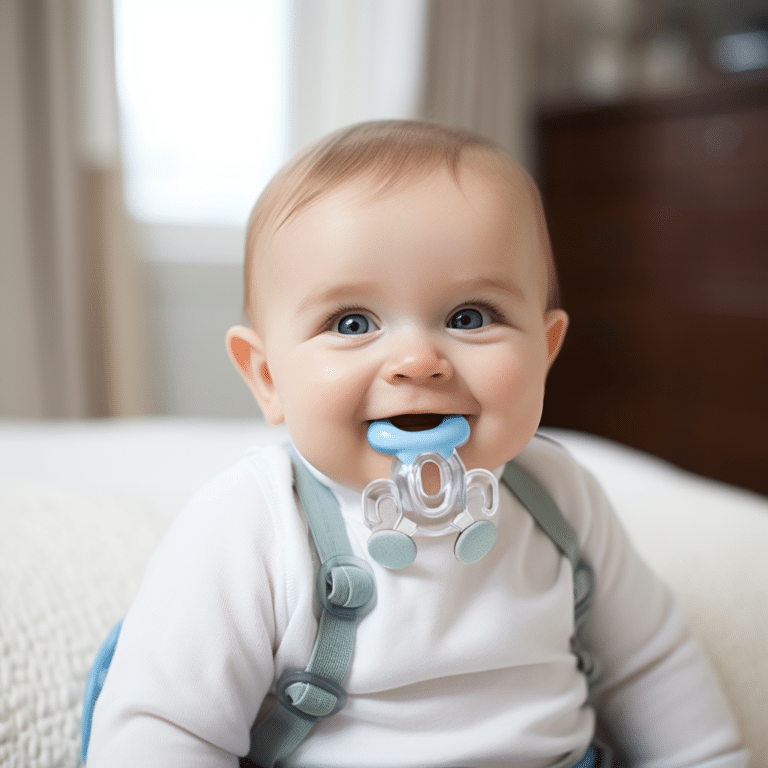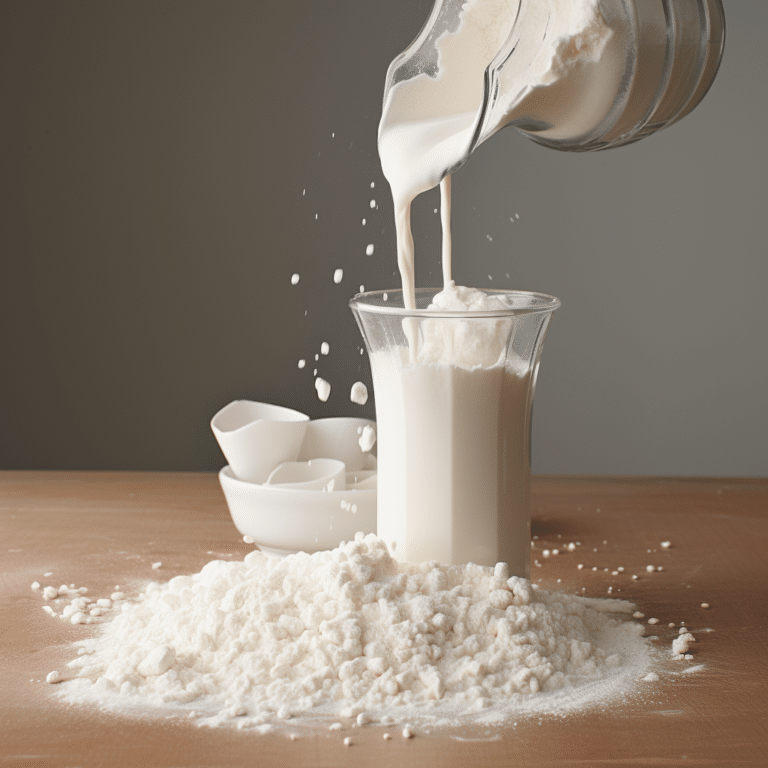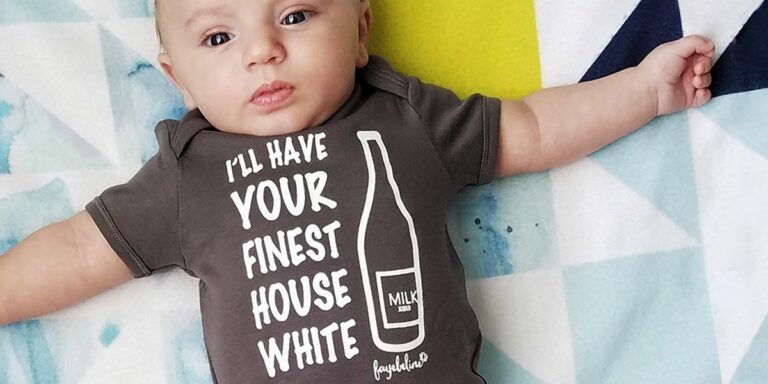Nurturing Baby Bond: Postpartum Recovery Guide
Navigating postpartum recovery can be tough and rewarding. As a new parent, you may be asking how to bond with your baby during this important time. Strengthening the connection early is great for your baby’s growth and your satisfaction as a parent.
You can foster this bond through skin-to-skin contact. Place your baby against your chest to give them the warmth and rhythm of your heartbeat. This has been seen to regulate their body temperature, help breastfeeding, and strengthen the emotional bond between parent and child.
Eye contact and talking to your baby is also super effective. Infants surprisingly understand facial expressions and the sound of their caregiver’s voice. Make eye contact while feeding or changing diapers and say nice things to create a relationship built on trust and security.
Infant massage has multiple advantages too. Gently massaging your baby with light pressure relaxes them and stimulates growth. It can improve blood flow, reduce colic or gas discomforts, and lead to better communication between you two.
Harvard Medical School research shows that fathers who get involved in caregiving tasks have an impact on their children’s intellectual development. Taking part in feeding, bathing, and soothing techniques helps fathers form a strong bond with their babies.
To sum it up, bonding with your newborn in the postpartum period involves skin-to-skin contact, eye contact, talking to them, infant massage, and active participation from both parents. These practices create strong connections that set the base for future interactions and bring many benefits to you and your baby.
Understanding the postpartum recovery period

The postpartum recovery period is a crucial time for new mothers to heal and adjust to their physical and emotional changes after childbirth. It is important for mothers to understand the postpartum recovery period as it can significantly impact their overall well-being and the bonding experience with their baby.
Physical Healing
The postpartum recovery period involves the body healing from the physical trauma of childbirth. This includes the healing of the uterus, perineum, and any incisions made during a caesarean section. Understanding the physical healing process can help mothers manage any discomfort or pain, and be more patient with themselves as their bodies recover.
Hormonal Changes
Postpartum recovery also involves significant hormonal changes. The body experiences a drop in pregnancy hormones, which can lead to mood swings, fatigue, and emotional vulnerability. By being aware of these hormonal changes, mothers can better understand and manage their emotions, ensuring a healthier emotional well-being.
Breastfeeding Challenges
For mothers choosing to breastfeed, the postpartum recovery period can also involve challenges such as low milk supply, engorgement, and sore nipples. Understanding these challenges can help mothers seek support and guidance to establish successful breastfeeding, ensuring both the baby’s and mother’s well-being.
Mental and Emotional Support
The postpartum recovery period can be emotionally challenging for many mothers due to various factors such as sleep deprivation, stress, and the adjustment to the new role of being a parent. It is important for mothers to seek mental and emotional support during this period. This can be through therapy, joining support groups, or having open and honest conversations with loved ones.
In addition to the points discussed above, it is also vital for new mothers to prioritize self-care during the postpartum recovery period. Taking time to rest, eat well, and engage in activities that promote relaxation and well-being can aid in the healing process and contribute to a stronger bond with the baby.
Remember, every mother’s postpartum recovery journey is unique. By understanding and acknowledging this, new mothers can navigate this period with more confidence and adaptability, ultimately fostering a deeper connection with their baby.
Postpartum recovery is like a marathon, except the finish line is a clean house and a full night’s sleep, and the only cheering crowd consists of your baby and a stack of dirty diapers.
The physical changes and challenges after childbirth
Post-childbirth brings about many physical and emotional changes. It’s a transformative time, needing patience and understanding. Here are some things to be aware of:
- The body adjusts back to pre-pregnancy state.
- Hormone changes can cause mood swings, fatigue, depression.
- Breastfeeding can cause engorgement, soreness, cracked nipples.
- Pain and bleeding are common postpartum.
- It may take time to lose the weight gained during pregnancy, requiring healthy diet and exercise.
It’s important to realize the special details of postpartum recovery. Every woman has different challenges, like C-section scar healing or perineal tears from vaginal birth. Comprehension of these details is essential for personal care.
In the past, postpartum recovery wasn’t well understood or supported. Women had to quickly “bounce back” without enough physical and mental help. Happily, this has changed in recent years, with more awareness and resources for new mums during this vital phase.
The emotional changes and challenges after childbirth
The postpartum recovery period brings immense emotional changes and challenges for mothers. It’s essential to understand and prepare for these feelings. Joy, anxiety, and even postpartum depression can all be felt. This is due to hormonal fluctuations, physical exhaustion, and adjusting to life with a newborn.
Mothers can feel overwhelmed. Caring for a newborn and their own physical recovery can be too much. The pressure to be a perfect mother adds extra stress. Self-care and help are vital during this tough time. Support from family, friends, or groups is invaluable.
New mothers also face practical challenges. Sleep deprivation can harm mental health and make it tough to cope. Breastfeeding or bottle-feeding, house tasks, and finding time for oneself seem impossible. Partners and loved ones should offer help whenever they can.
Pro Tip: Asking for help is okay. Taking care of mental health is just as important as physical well-being. Get professional support if feeling prolonged sadness or anxiety.
Importance of bonding with your baby during postpartum recovery
Bonding with your baby during postpartum recovery is of utmost importance. It can have lifelong benefits. The first few weeks can be hard, but bonding can help you cope.
Benefits of bonding include: emotional attachment, understanding and responding to your baby’s cues, and oxytocin release.
Skin-to-skin contact is a great way to bond. It regulates body temperature and breathing. Plus, it releases oxytocin, the “love hormone”.
Talking, singing, and reading to your infant helps bond too. They recognize familiar voices and find comfort in hearing them. This stimulates their developing brain.
Gentle massages are another way to bond during postpartum. They help relax and can ease discomfort.
Research shows maternal-infant bonding reduces the risk of behavioral problems in childhood. Bonding is important for emotional well-being and growth.
Tips for bonding with your baby during postpartum recovery
Tips for Forming a Strong Bond with Your Baby during Postpartum Recovery:
Practice skin-to-skin contact
Regularly holding your baby against your bare skin can promote feelings of security, warmth, and closeness. It also enhances breastfeeding and helps regulate your baby’s body temperature and heart rate.
Engage in eye contact and gentle touch
Establishing eye contact and gently touching your baby’s skin can facilitate a deep connection. These simple gestures communicate love, affection, and a sense of being present.
Create a soothing environment
Carve out a calm and peaceful space where you and your baby can relax together. Soft music, dim lighting, and a cozy atmosphere can create a comforting environment to bond with your little one.
Talk and sing to your baby
Regularly communicating with your baby through gentle speech and singing not only assists in language development but also strengthens the emotional bond between you both.
Share caregiving responsibilities
Involving your partner or other family members in caring for your baby encourages shared experiences and strengthens familial bonds. It also allows you to take breaks and practice self-care, which ultimately benefits your relationship with your baby.
Be responsive to your baby’s needs
Promptly responding to your baby’s cries, needs, and cues fosters a sense of trust and security. This responsiveness reassures your baby that they are loved and valued.
To ensure a holistic bonding experience, remember to give equal importance to your own well-being by getting enough rest, seeking emotional support, and asking for help when needed.
By following these tips, you can form a strong bond with your baby during the postpartum recovery phase, fostering a loving and nurturing relationship that will benefit both of you in the long run.
Get ready to feel like a kangaroo, minus the pouch, as you embrace skin-to-skin contact and become your little one’s cozy human incubator during postpartum recovery.
Skin-to-skin contact and kangaroo care
Skin-to-skin contact involves holding your newborn against your bare chest. This provides warmth, comfort, and security. Additionally, kangaroo care is a special technique for premature babies. It entails placing the baby directly on the parent’s chest to promote well-being.
Both of these practices regulate the baby’s heartbeat and breathing. They also stabilize body temperature, boost immunity, and enhance overall well-being. Plus, they help with early breastfeeding as they stimulate a baby’s natural instincts.
These techniques create lasting memories and have a profound effect on both parent and baby. Embrace the power of skin-to-skin contact and kangaroo care for incredible bonding and health benefits!
Breastfeeding and bottle-feeding bonding techniques
Bonding with your baby is essential during postpartum recovery. Establishing a strong connection via breastfeeding or bottle-feeding can be incredibly rewarding. Here are five techniques to foster a strong parent-child bond:
- Create a cozy atmosphere to relax during feedings. Dim the lights, play soft music, and find a comfy position.
- Maintain eye contact and practice skin-to-skin contact. This releases oxytocin, the “love hormone,” which boosts affection.
- Talk or sing to your baby. Your voice is familiar from the womb, providing comfort and assurance.
- Respond to your baby’s hunger cues promptly. This builds trust by meeting their needs consistently.
- Involve other family members in feedings. This strengthens the familial bond.
Dr. John Kennell’s research from the 1970s highlighted the importance of skin-to-skin contact to foster bonding and improve infant health. His work revolutionized postpartum care and parental closeness.
Babywearing and carrying your baby
Babywearing offers many advantages! It helps build a strong bond between you and your baby. You can keep your hands free for other tasks while keeping your baby content. It’s like being in the womb, helping reduce colic and fussiness. It also stimulates their senses from a unique perspective. Breastfeeding mothers can nurse on the go. Plus, it promotes emotional well-being and security.
There are various types of carriers to choose from, like wraps, slings, and meh dais. Find what works best for you and your baby. Try babywearing and strengthen that bond today!
Talking and singing to your baby
Talking to your little one is great for stimulating their language and cognitive skills! Even if they don’t understand the words yet, it can capture their attention. Singing also has a calming effect on them. Plus, babies learn tones, pitches, and rhythms which are important for communication.
Engaging in these activities will create a strong emotional connection. It’ll reassure them that they’re loved and cared for. Also, it’s a great opportunity to bond with your baby.
Research has shown that talking and singing to babies can enhance their cognitive abilities later in life. So don’t hesitate to chat, sing, or hum – every interaction counts!
Engaging in gentle touch and massage
Create a calm atmosphere with dimmed lights, soft music, and a comfortable temperature for your baby massage session. Choose a comfy position, sitting or lying down. Start with gentle strokes on their back, arms, and legs. As they grow, add kneading, rolling, and stretching. Talk softly or sing while you massage to foster a connection between you two. Ensure both your hands and your baby’s are clean for hygiene. Take cues from your baby. They may show discomfort or resistance; adjust or stop if they do.
Oxytocin is released from gentle touch and massage. It strengthens the bond and reduces stress levels. Plus, it can help with any muscle tension your baby has. So, choose a daily time to engage in massage – your baby will benefit physically and emotionally from it.
Establishing a routine and spending quality time together
My postpartum recovery was a challenge. To create a bond with my newborn, I set up a routine. Feeding, naps, playtime, and bath time at regular times provided stability and predictability. Additionally, skin-to-skin contact regulated body temp and promoted bonding. Eye contact, talking, and narrating everyday activities stimulated my baby’s developing brain. These strategies improved our bond. Support from family and support groups helped too. Investing time and effort into bonding during the postpartum period is key.
Taking care of yourself during postpartum recovery

During the period of postpartum recovery, ensuring self-care is crucial. Focusing on oneself and taking necessary steps to recover physically and mentally is essential. This can involve getting enough rest, nourishing the body with nutritious meals, practicing relaxation techniques, and seeking help from support systems. Emphasizing self-care allows mothers to regain strength and energy, enabling them to effectively bond with their baby and navigate the challenges of parenthood. It is important for new mothers to prioritize their own well-being in order to provide the best care for their baby during this postpartum phase.
Rest and self-care practices: Because nothing says quality bonding time like a nap while baby’s asleep, followed by a self-indulgent bubble bath – it’s the little luxuries that make postpartum recovery feel not-so-bad.
Rest and self-care practices
Alicia, a first-time mum, shares her postpartum story. Initially, she felt overwhelmed. But, she prioritized her own well-being and took care of her newborn. She took daily walks for activity and tranquility. Also, she found a supportive online community where she could share experiences with other mums. With self-care and support, Alicia navigated postpartum recovery with ease and confidence.
To follow in Alicia’s footsteps: prioritize sleep! Take short naps when the baby sleeps. Eat nutritious meals and stay hydrated. Ask for help from loved ones. Engage in gentle exercises. Practice self-care rituals like taking a warm bath, reading, meditating, or deep breathing exercises. Every woman’s postpartum experience is unique. So, listen to your body’s needs and adjust accordingly. Ask for guidance from healthcare professionals if needed.
Seeking support from your partner, family, and friends
Rachel, a new Mom, found great aid in her companions. Her partner took up night feedings, and her mother cooked meals and gave comforting words. Friends even helped with chores to give her more time to bond with the baby. This tremendous support made postpartum recovery smoother for Rachel.
Also, it’s vital to consider that each person’s postpartum journey is special. Find people who understand and treasure your individual experience.
Finding balance between baby bonding and personal well-being
Striking the right balance between bonding with your new baby and taking care of yourself is a must for your well-being during postpartum. Here are some tips to help:
- Make time for self-care activities like baths or walks to recharge.
- Ask family members for help, or hire a postpartum doula.
- Prioritize sleep by napping and having a bedtime routine.
- Stay mentally and emotionally connected through journaling or therapy.
- It’s okay to say no if you need alone time.
Also, speak openly with your partner about your needs. Share responsibilities and support each other. Join online communities or support groups to connect with other new parents. Building a network of support will be beneficial.
A study from the American Academy of Pediatrics showed that mothers who do self-care have lower stress and can handle motherhood better.
Conclusion
Bonding with your baby during postpartum recovery is key! Cuddle, talk, and sing. Skin-to-skin contact helps relieve stress. Try gentle massages for a loving environment. Involve your partner or family members for extra bonding. Patience and consistency are needed.
There are resources to assist in the bond. Attend parenting classes or join support groups. Get advice from experts. Use apps or websites to track milestones or provide helpful advice. Digital resources can help first-time parents.
Pro Tip: Each parent-baby relationship is unique – don’t compare! Trust your instincts. Create a nurturing environment with love, patience, and understanding. This will strengthen the bond post-recovery!
Frequently Asked Questions
Q: How soon can I start bonding with my baby during postpartum recovery?
A: Bonding with your baby can begin immediately after birth. Skin-to-skin contact, talking, and gentle touches can help establish a strong connection.
Q: What can I do to bond with my baby if I had a difficult delivery?
A: Even in cases of difficult deliveries, bonding is still possible. Engage in activities such as eye contact, lullabies, gentle rocking, and cuddling to develop a bond with your baby.
Q: Can breastfeeding help with bonding during postpartum recovery?
A: Breastfeeding promotes bonding through the intimate physical contact it involves. The hormones released during breastfeeding can enhance the emotional connection between you and your baby.
Q: Are there any specific activities that can aid in bonding with my baby?
A: Yes, several activities can encourage bonding, such as baby massage, reading aloud, singing, and engaging in interactive play. These activities promote closeness and a sense of security.
Q: What if I’m experiencing postpartum depression? Will it affect bonding with my baby?
A: Postpartum depression can make bonding challenging, but seeking support and treatment is crucial. Engage in professional counseling, join support groups, and involve your partner or family to help foster a healthy bond with your baby.
Q: Can other family members participate in bonding with my baby?
A: Absolutely! Involving other family members, especially the baby’s father or co-parent, siblings, and grandparents, can contribute to enhancing the bond between your baby and extended family members.






